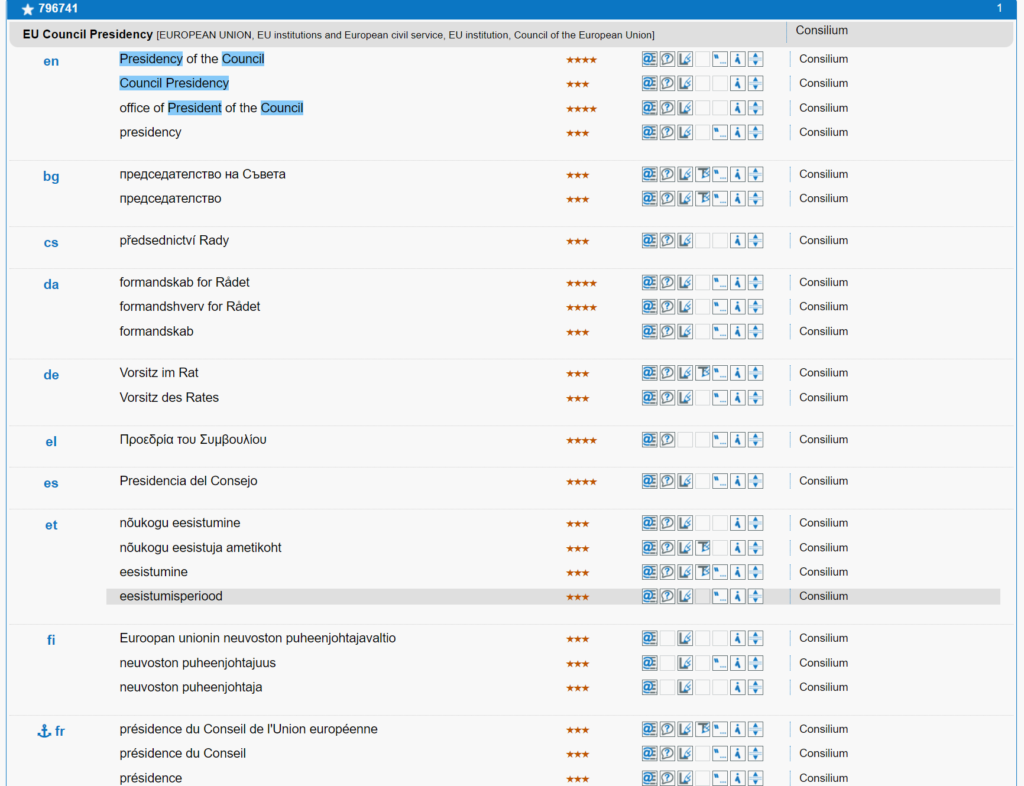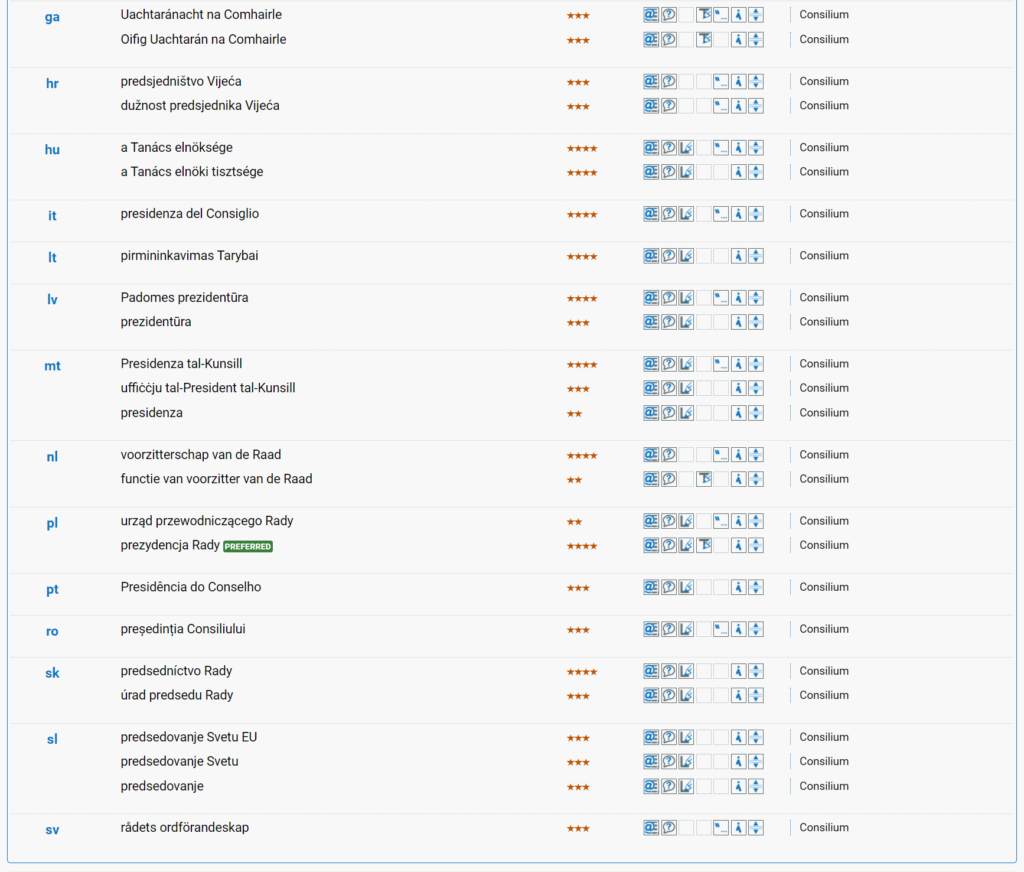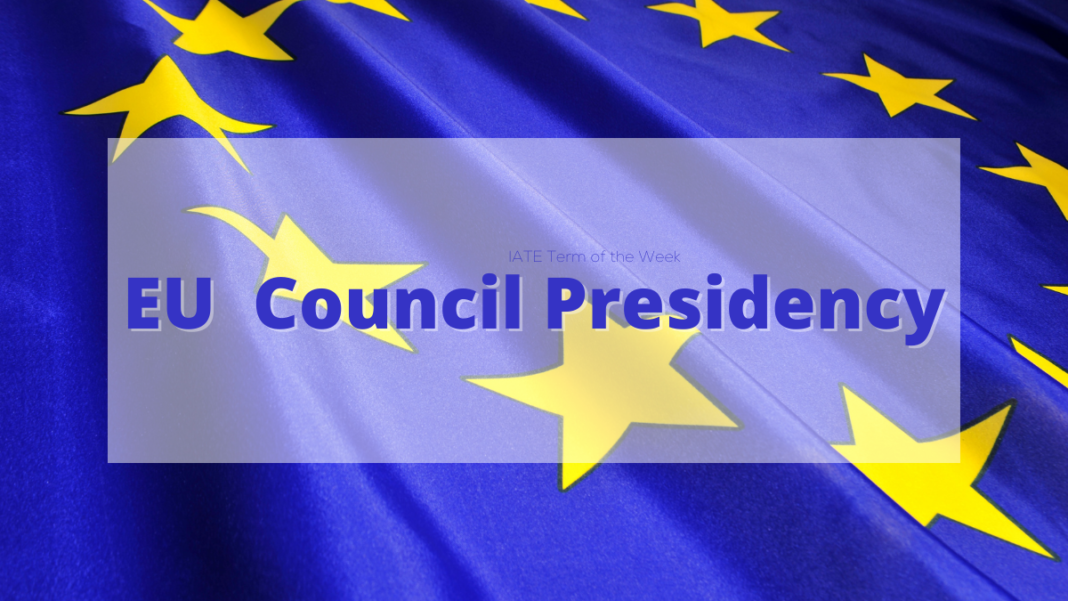Do you know who defines the EU general political direction and priorities? It’s the European Council. It is comprised of the heads of governments of all 27 EU Member States, the European Council President (currently Charles Michel), and the President of the European Commission (Ursula von der Leyen). The European Council is not a decision or law making body, but rather defines the most important areas of concern that should be addressed on an EU level.


What is the EU Council Presidency?
The EU Council Presidency lasts for 6 months and it rotates among member states. Its role is to ensure coherency among member states and maintain a good level of cooperation among them. The European Council and in particular the three Council Presidency countries, do that by initiating informal negotiation meetings, reaching agreements through trilogues and Conciliation Committee Meetings. It acts as a liaison between Member States, on one hand, and the Council, the Commission and the European Parliament, on the other. The three Member States that hold the presidency are called “trio” and they set the general agenda and long-term goals for the next 18 months. The current trio consists of Germany, Portugal and Slovenia. The next “trio” will take over as of 1st January 2022 and it will include France, the Czech Republic and Sweden.
What is the relation between the EU Council Presidency and the European Parliament?
Let us have a look at a concrete example of cooperation between the EU Council Presidency and the European Parliament, namely the e-CODEX regulation.
The e-CODEX system is “the digital backbone of EU judicial cooperation in civil and criminal matters. e-CODEX comprises a package of software products which allow to set up a network of access points for secure inter-court digital communication…The main purpose of the e-CODEX system is to enable the digitalisation of judicial communication, including communication between courts, as well as between citizens and courts, including the secure exchange of judicial documents.”.[1] With the aim of providing for a solution, on 2 December 2020 the European Commission made a proposal for an e-CODEX system that will be set up on an EU level thus harmonising the digital judicial communication exchange among Member States. On behalf of the European Parliament, European Parliament’s Committee on Civil Liberties, Justice and Home Affairs (LIBE) and European Parliament’s Committee on Legal Affairs (JURI) were appointed to take part in the negotiations and draft amendments. The current EU Council Presidency drafted a compromise text at the end of May 2021. Following a negotiations process on the regulation content, on 8 December 2021 the EU Council Presidency and the European Parliament reached a provisional agreement on the proposal for a regulation. The next EU Council Presidency figures on the European Parliament’s agenda this week. President Sassoli and the Conference of Presidents met in Paris with ministers from the French government, including Prime Minister Castex, and the speaker and members of the National Assembly (Assemblée Nationale) to discuss and prepare for the upcoming French Council Presidency.
[1] European Parliament. 2021. Legislative train schedule
Reference:
- Agenda | News | European Parliament. 2021. Agenda | News | European Parliament. [ONLINE] Available at: https://www.europarl.europa.eu/news/en/agenda/2021-49. [Accessed 10 December 2021].
- European Council. 2021. Digitalisation of justice: Council presidency and European Parliament reach provisional agreement on e-CODEX – Consilium. [ONLINE] Available at: https://www.consilium.europa.eu/en/press/press-releases/2021/12/08/digitalisation-of-justice-council-presidency-and-european-parliament-reach-provisional-agreement-on-e-codex/. [Accessed 10 December 2021].
- European Council. 2021. The presidency of the Council of the EU – Consilium. [ONLINE] Available at: https://www.consilium.europa.eu/en/council-eu/presidency-council-eu/. [Accessed 10 December 2021].
- European Parliament. 2021. Legislative train schedule | European Parliament. [ONLINE] Available at: https://www.europarl.europa.eu/legislative-train/theme-a-new-push-for-european-democracy/file-proposal-for-the-e-codex-regulation. [Accessed 10 December 2021].
France Diplomacy. 2021. The French Presidency of the Council of the European Union – Ministry for Europe and Foreign Affairs. [ONLINE] Available at: https://www.diplomatie.gouv.fr/en/french-foreign-policy/europe/the-french-presidency-of-the-council-of-the-european-union/. [Accessed 10 December 2021].

She holds degrees in both Public Relations and European Governance. Currently, Daniela is combining her passion for communications and social media with her interest in the work of European institutions.

